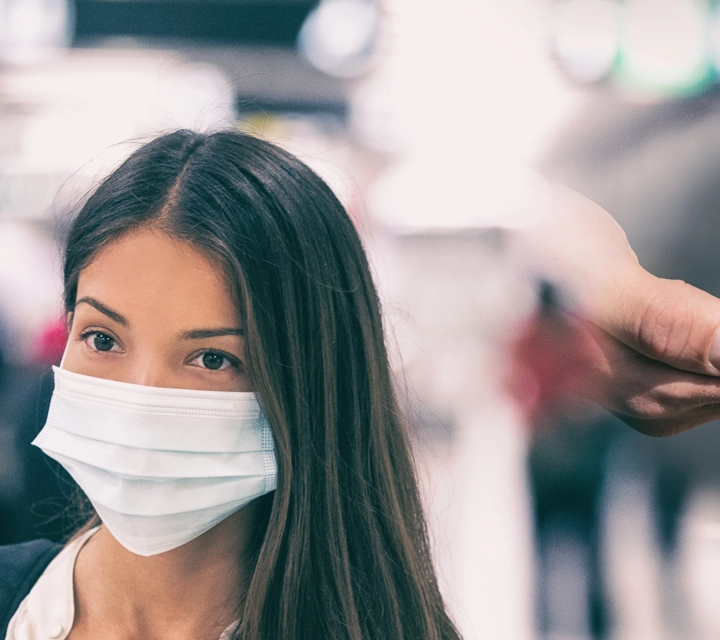Many patients who already had at least one COVID-19 infection are experiencing another infection. As repeat infections occur, questions may arise about how an individual can get COVID-19 more than once. Review these FAQs on what may be happening immunologically with repeated infections and plain language guidance when talking with patients.
Q: How is it possible for me to get more than one COVID-19 infection?
A: COVID-19 reinfections are substantially more common in the Omicron era (Pulliam, March 2022; Cohen, July 2023). Substantial changes in receptor-binding domain and spike proteins of Omicron SARS-CoV-2 viruses result in increased likelihood of immune escape with Omicron, meaning an increased likelihood of reinfection. Concomitantly, there is waning of antibody elicited after infection or vaccination. Therefore, viral lineages that are more transmissible can maintain evolutionary fitness and circulate in communities even without exhibiting substantial immune escape (Markov, April 2023). This combination of immune escape mutations and increased viral transmissibility of Omicron strains make reinfections highly likely for most individuals. This combination of immune escape mutations and increased viral transmissibility of Omicron strains make reinfections highly likely for most individuals.
Evidence from a recent meta-analysis suggests infection prior to the Omicron era reduces the likelihood of severe disease during a subsequent Omicron infection. However, the same meta-analysis noted that prior infection is less protective against reinfection with Omicron and that immunological protection against Omicron afforded by a pre-Omicron variant infection may wane rapidly. The risk of reinfection is increased in individuals with immunocompromising conditions. Those individuals may mount less antibody after infection or vaccination and are therefore more likely to have antibody levels below a threshold of immunological protection.
|
Plain Language Summary: There are two main reasons for COVID-19 reinfection. The first reason is that the virus that causes COVID-19 is always changing. Sometimes, the changes are so big that our immune system doesn’t recognize the virus anymore and is more susceptible to getting sick again. The second reason is that the protection we develop after vaccination or infection decreases over time. This is why it’s important to keep up to date on COVID-19 vaccines. It’s also important to take additional precautions, such as washing hands and wearing masks, when you are at high risk of exposure to the virus. |
Q: What are the risks associated with more than one COVID-19 infection?
A: Prior COVID-19 infection results in high level of neutralizing antibody and cell-mediated immunity against COVID-19 (Lee, July 2023). This appears to be protective against severe COVID-19 outcomes in subsequent infections, but the level of this protection wanes considerably after 12 months (Bobrovitz, May 2023). Additional infections with COVID-19, especially reinfections due to Omicron, result in a broader SARS-CoV-2 antibody repertoire than developed by individuals with a history of single infection only (Wei, October 2023). Reinfection may also be associated with a reduced length of viral shedding and a reduction of a very strong antibody response (i.e., ”immune imprinting”) to the original strain that may have been induced by vaccination (Wei, October 2023; Maier, January 2023).
Unfortunately, however, reinfections have been associated with an increased risk of post-acute sequelae of COVID-19 (PASC, or “long COVID”) in adults 50 years of age and older (Bowe, November 2022). Additionally, because every COVID-19 infection has a risk of severe outcomes, reinfections increase an individual’s overall risk of a severe outcome after COVID-19 infection. Reinfection is more common in immunocompromised individuals and those living in long-term care facilities; outcomes after reinfection in those populations may be more severe than in the general population (Lee, August 2023; Holmer, January 2023).
|
Plain Language Summary: Your immune system develops more protection after a COVID-19 vaccine or after being infected with COVID-19. This reduces the likelihood of getting COVID-19 in the future or having a severe infection if you do get sick. |

